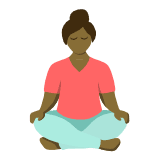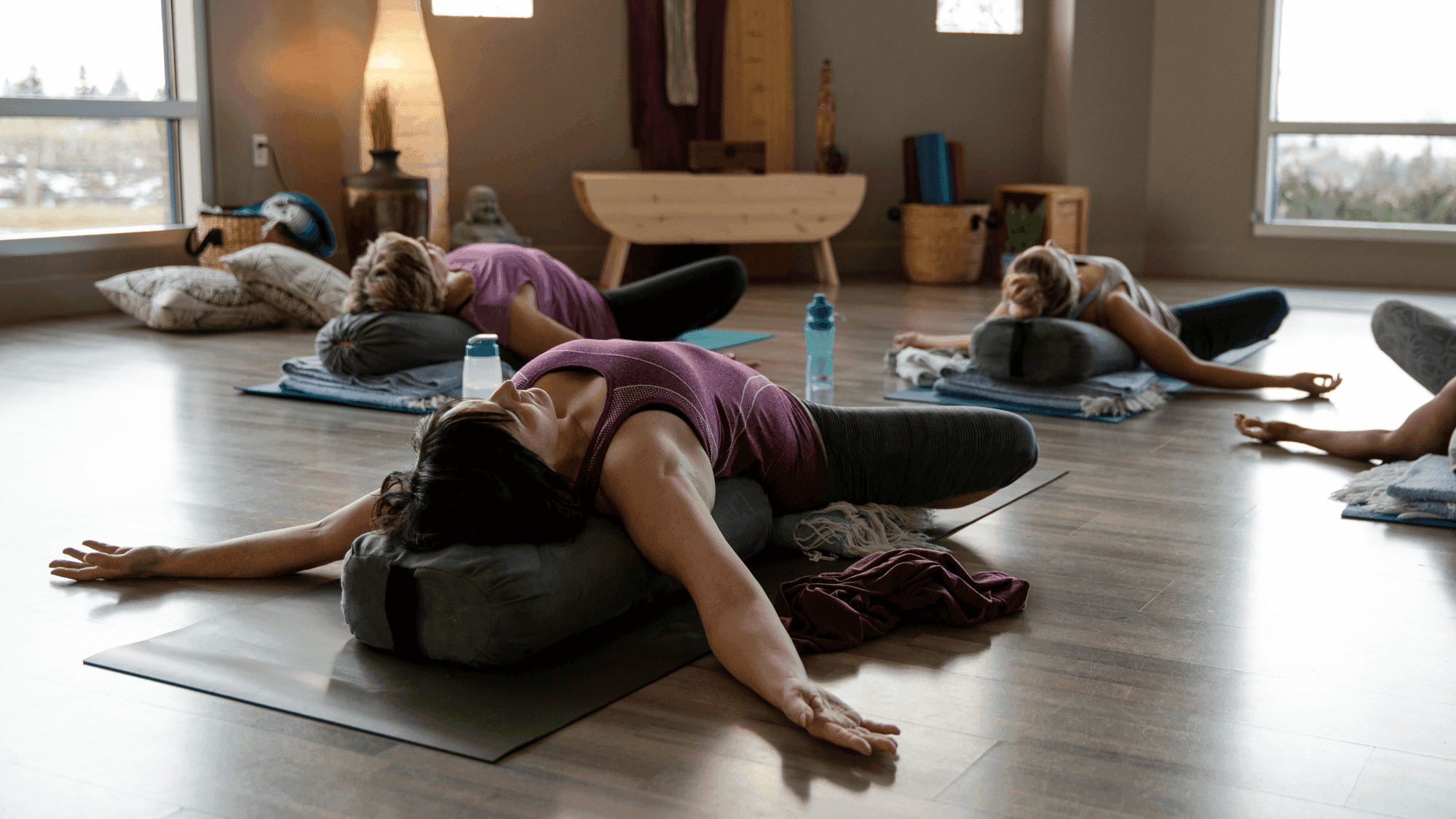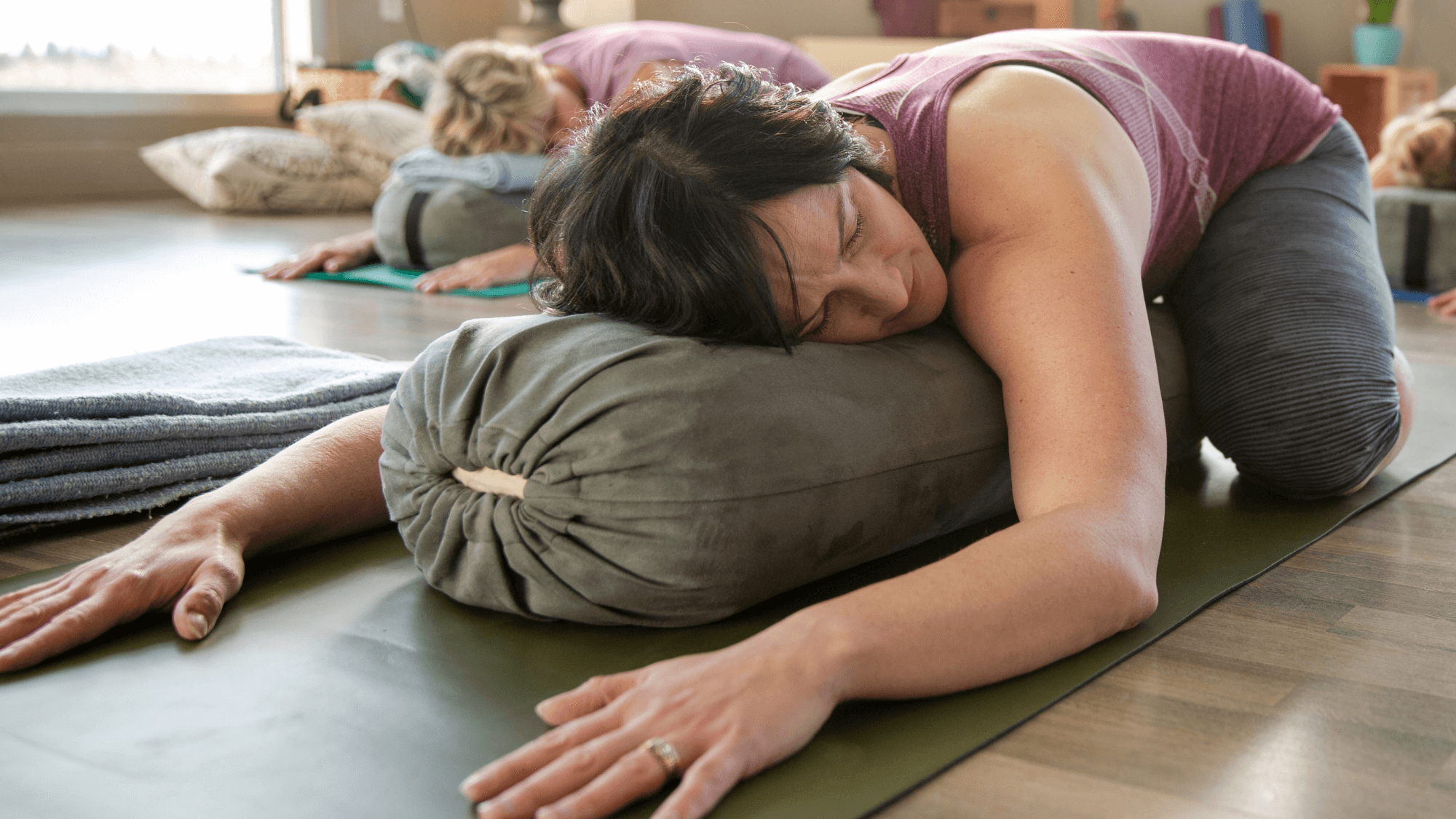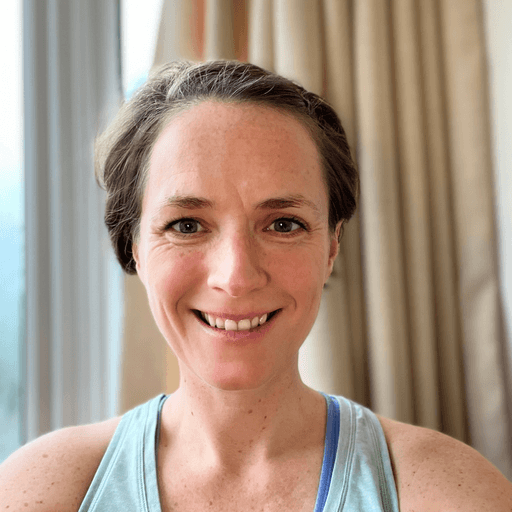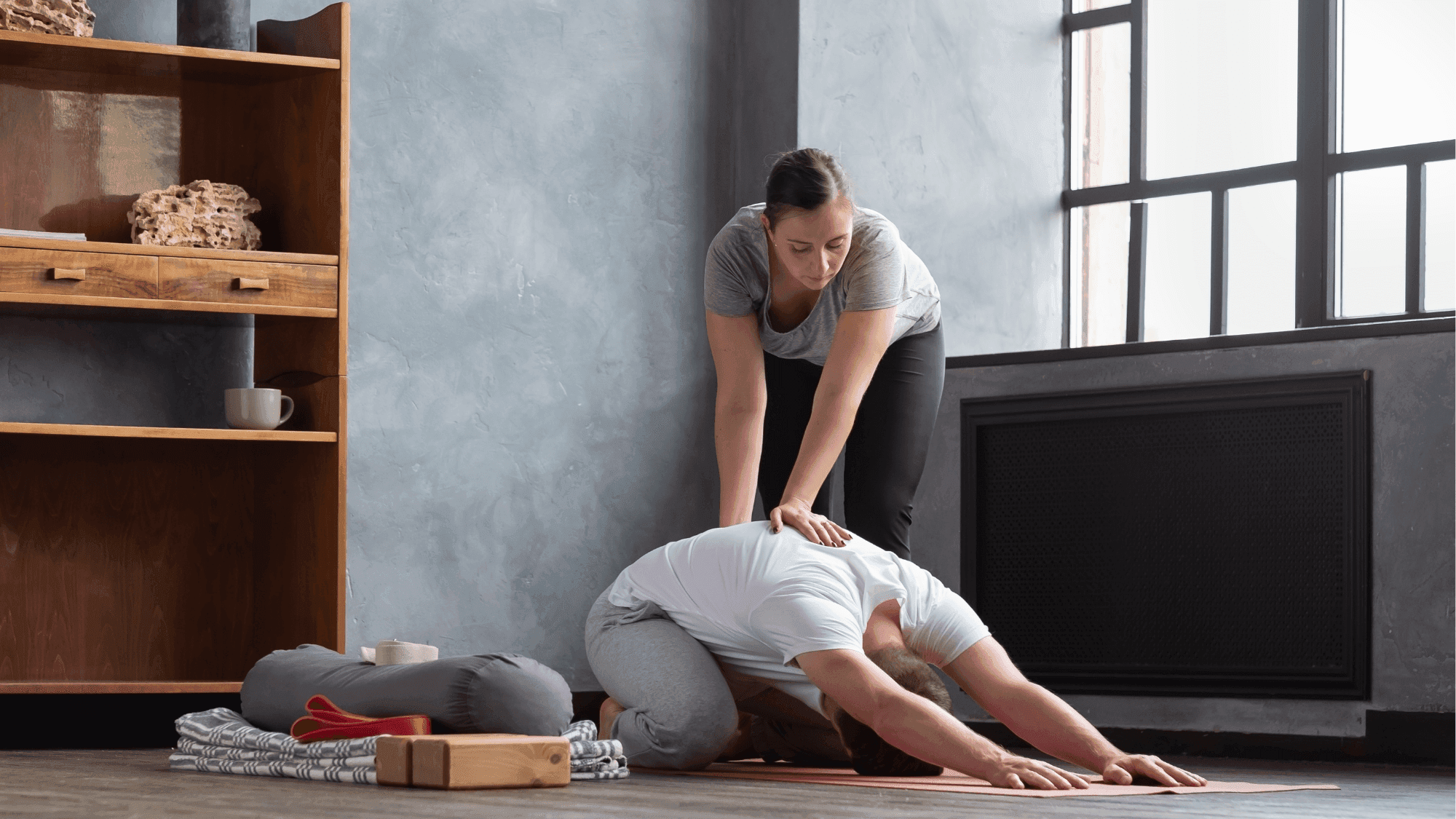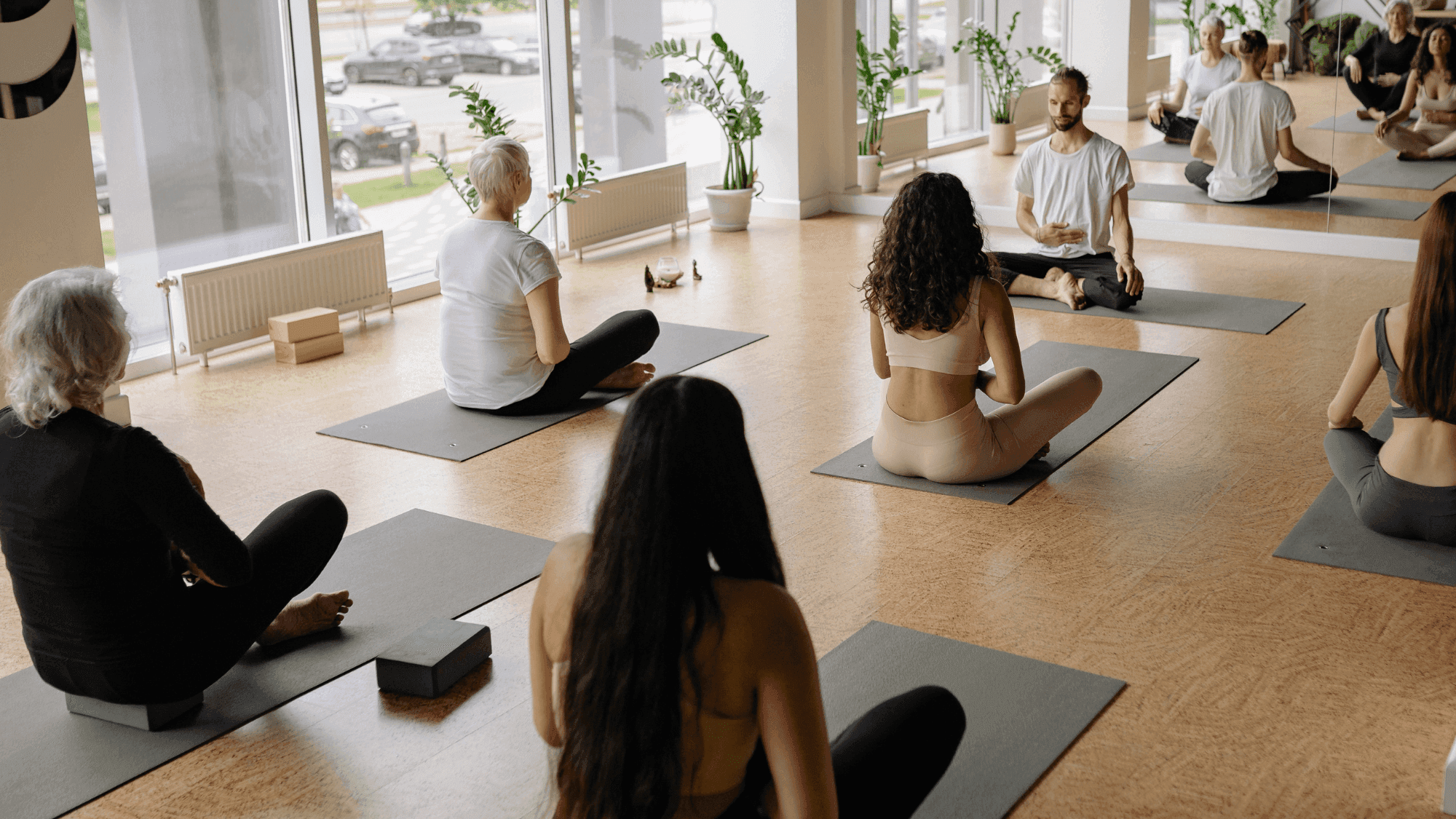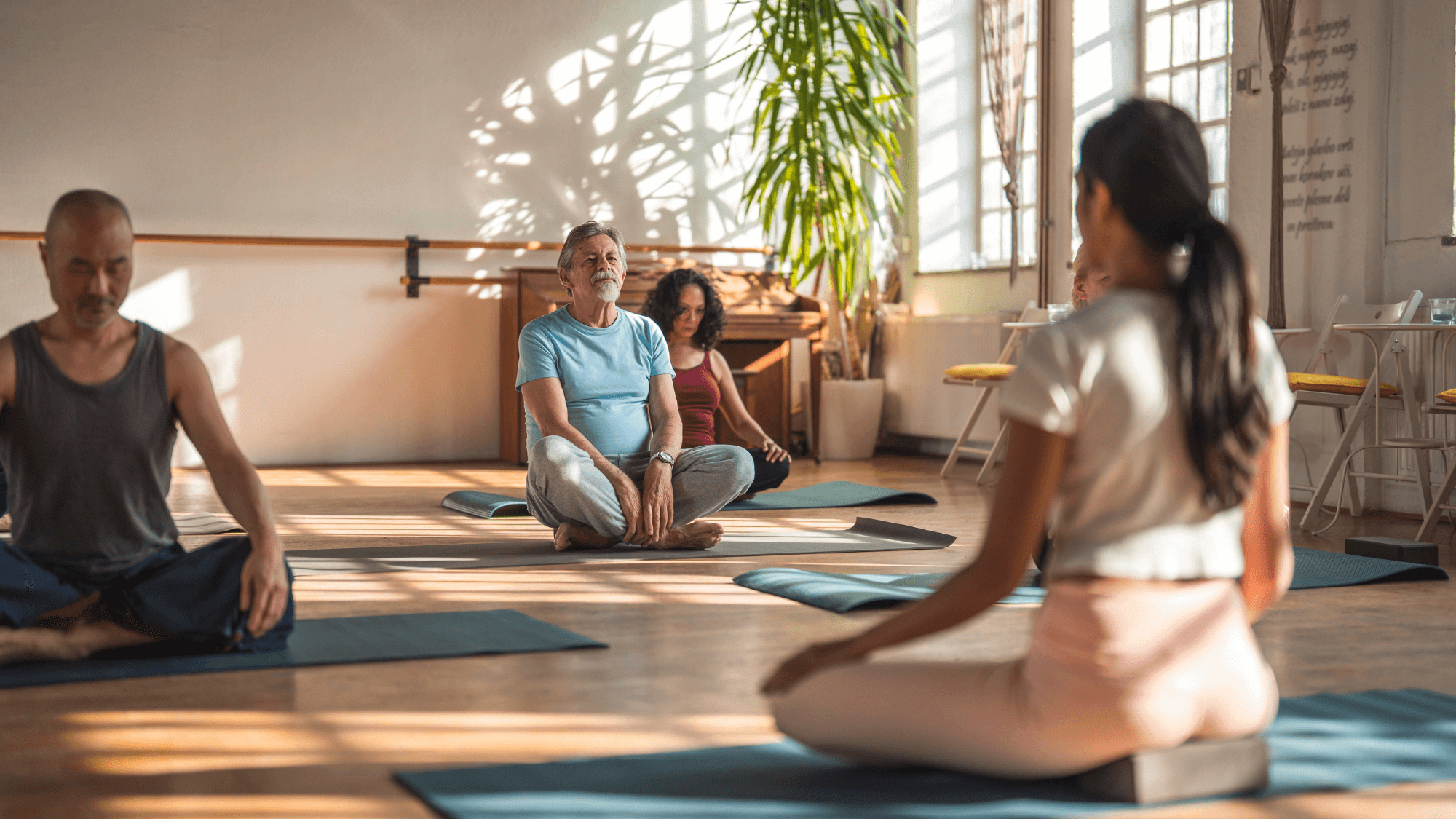
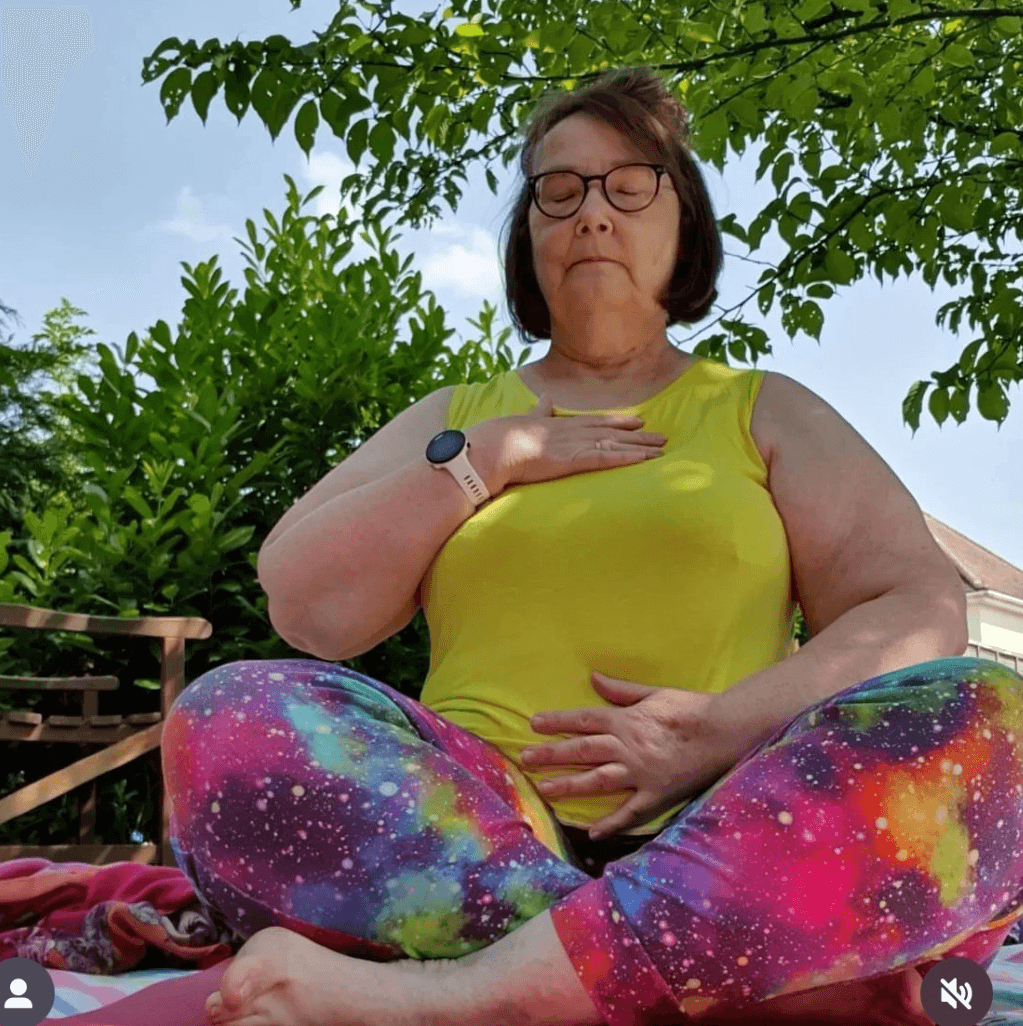

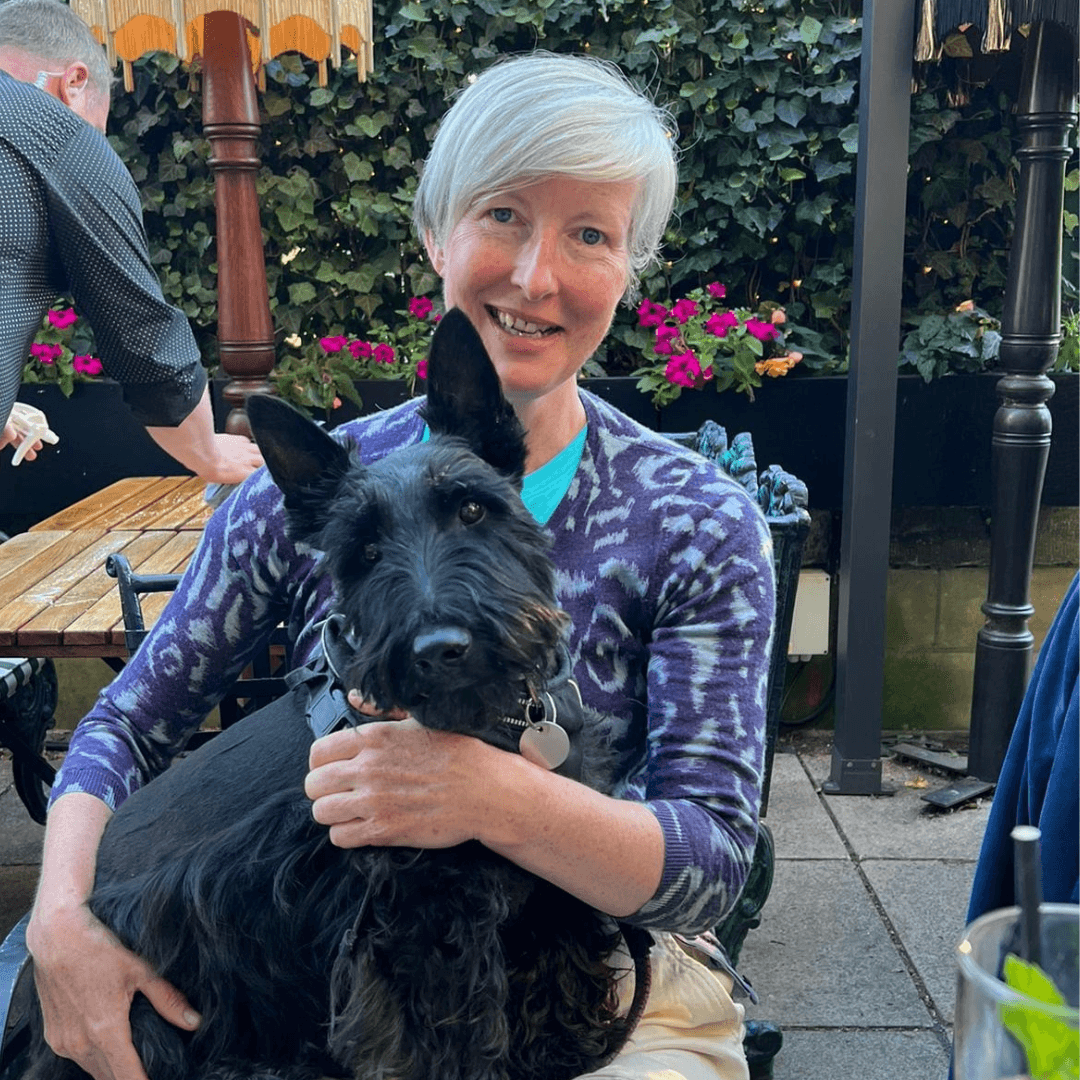

5.0
from 200+ reviews
Resources
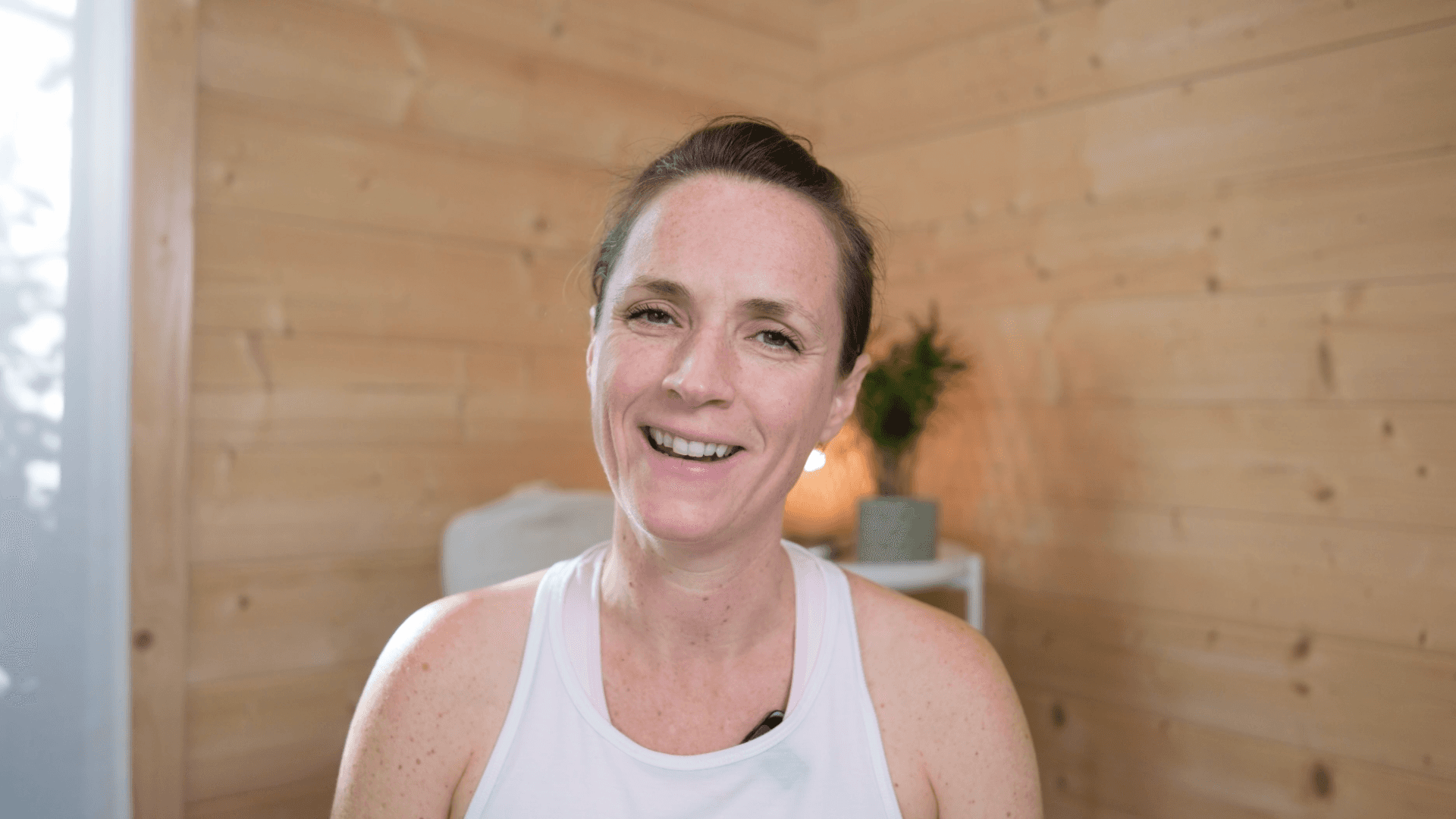
Who are we
A community making yoga personal, supportive, and transformative.
Watch video
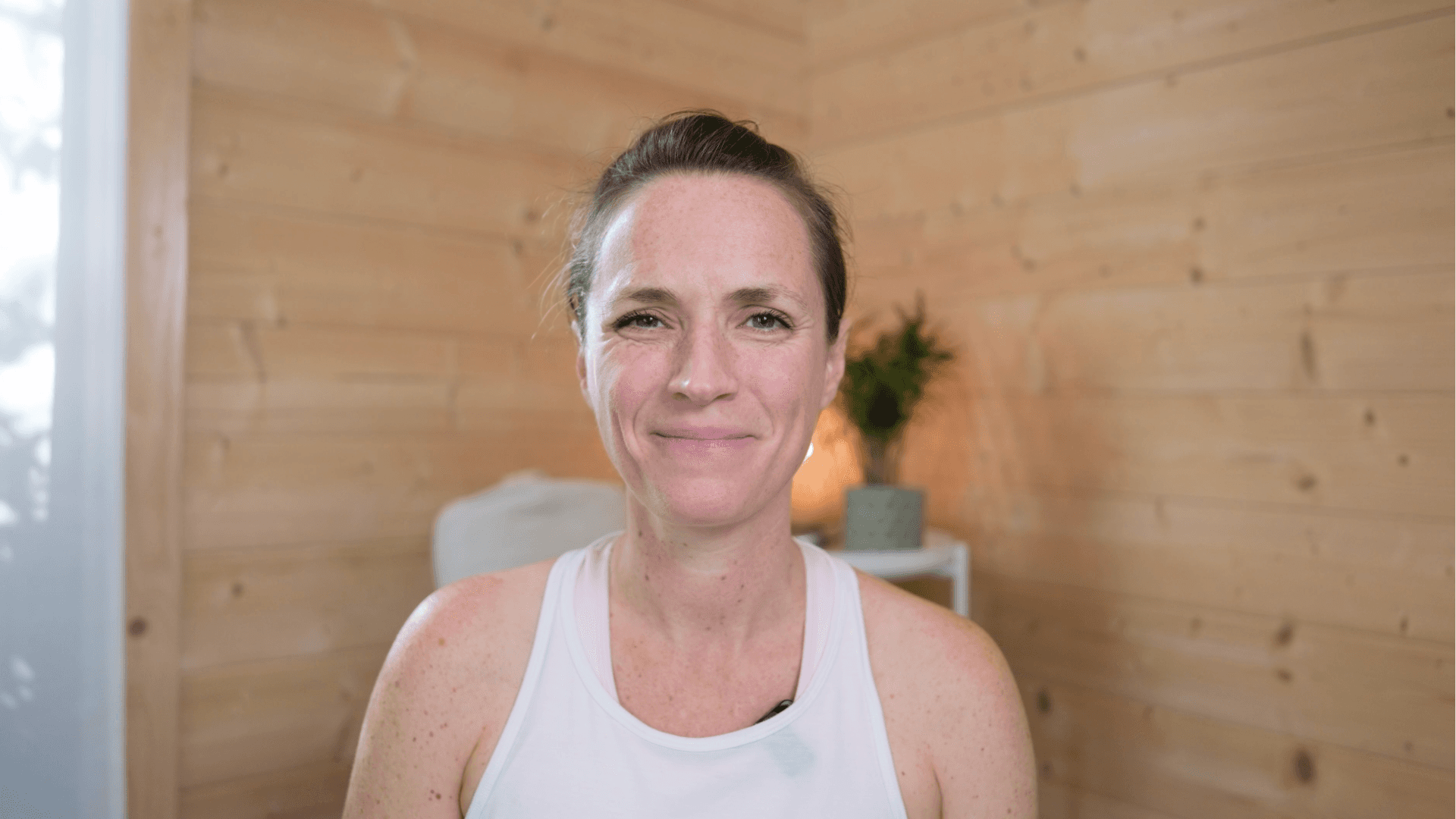
How to get started
Your journey begins with 15 days free. Simple steps, lasting change.
Watch video
Yoga and Menopause: Gentle Yoga Practices
How yoga can help us find balance during times of change.
Written by
Carrie Froggett
Published on
November 11, 2024
The transition through perimenopause and beyond brings unique challenges for many women. While we can't stop these natural changes, gentle yoga can help us navigate them with more ease and comfort. Think of these practices not as a cure, but as tools to help you feel more at home in your body during this time of transformation.
Why Yoga Now?
Our bodies benefit from movement that's both gentle and purposeful during times of hormonal change. Yoga isn't about twisting yourself into complex poses or pushing your limits. Instead, think of it as a way to listen to your body and give it what it needs - whether that's gentle stretching, quiet stillness, or something in between.
Simple Poses to Support Your Journey
Our bodies often tell us what they need - we just need to learn how to listen. The following poses can help you find moments of calm and comfort throughout your day. They're designed to be gentle and accessible, perfect for both beginners and those with more yoga experience.
Finding Ground: Simple Seated Practices
When hormone levels are fluctuating, feeling grounded becomes especially important. These seated poses offer a way to find stability and calm, making them perfect starting points for your practice.
The simple Cross-Legged Pose might seem basic, but it's one of the most effective ways to find both comfort and presence. Think of it as creating your own peaceful seat:
Start by sitting on a cushion or folded blanket to raise your hips
Cross your legs comfortably - they don't need to be tightly crossed
If your knees are higher than your hips, place cushions under them for support
Imagine a gentle string lifting the crown of your head, helping you sit tall but relaxed
Stay for a few minutes, then switch which leg is in front
This pose can become a refuge during busy days. Try it while having your morning coffee, reading, or simply taking a quiet moment for yourself.
The comfortable Kneeling Pose offers another way to find stillness, with the added benefit of supporting digestion. It's particularly helpful after meals:
Kneel on a mat, using cushioning under your knees if they're sensitive
Sit back on your heels (a cushion between heels and bottom can make this much more comfortable)
Keep your upper body relaxed but upright
Even a minute or two in this pose can help settle both mind and digestion
Supporting Your Core: Pelvic Floor Practices
Our pelvic floor muscles often need extra attention during hormonal transitions. These gentle practices can help maintain strength and stability in this important area.
The Butterfly Pose is a wonderful way to create space and support in your pelvic region. It's gentle yet effective:
Begin sitting on a cushion to elevate your hips
Bring the soles of your feet together, letting your knees fall out to the sides
Don't worry about how wide your knees are - comfort is key
Hold your feet or ankles and sit tall
You can practice this while watching TV or reading - multitasking at its finest!
Incorporating gentle pelvic floor exercises into your day can make a big difference. Try this simple practice:
Find a comfortable seated position
Imagine gently lifting your pelvic floor (the muscles you use to stop urination)
Hold for a couple of seconds, then release completely
Practice 5-10 gentle lifts and releases
This can be done anytime, anywhere - waiting for the kettle to boil, sitting at your desk, or during your commute
Cooling and Calming: Restorative Poses
These poses are particularly helpful for managing temperature changes and finding deep relaxation. They're like pressing the reset button for your nervous system.
The Supported Fish Pose is wonderful for opening the chest and cooling the body:
Place a cushion or rolled blanket lengthwise on your mat
Lie back so the cushion supports your spine, with your head resting on the mat
Let your arms rest comfortably at your sides
Keep your legs extended or bent, whatever feels better
Stay for just a minute or two at first
Remember to come out slowly, rolling to your side first
Legs Up the Wall is perhaps the most soothing pose of all. It's perfect for hot flushes, sleepless nights, or anytime you need to restore your energy:
Sit sideways next to a wall
Lie back and swing your legs up the wall
Your bottom can be right against the wall or slightly away
Place a cushion under your hips if you like
Rest here for 5-10 minutes
This pose is especially helpful before bed or during moments of overwhelm
Making It Work for You
The beauty of these practices lies in their flexibility. You don't need special clothes, equipment, or even much time. Here are some friendly tips:
Start small: Even 5 minutes can make a difference
Listen to your body: Some days you might do more, others less
Use props generously: Cushions, blocks, and blankets are your friends
Practice regularly: A little bit often is better than a lot occasionally
Breathe naturally: Let your breath flow easily - no need to force anything
Beyond the Physical
While these poses can help with physical symptoms, they offer something else too - time to check in with yourself. As you practice, you might notice:
A sense of feeling more grounded
Improved sleep quality
Better digestion
More stable moods
A general sense of well-being
Getting Started
Choose one pose that appeals to you and make it part of your daily routine. Perhaps Legs Up the Wall before bed, or the Comfortable Kneeling Pose after meals. As you become comfortable with one pose, you can gradually add others if you wish.
A Final Note
Every woman's experience is unique, and the same goes for yoga practice. What works beautifully for one person might not feel right for another. That's perfectly okay. The most important thing is to find what feels supportive and nourishing for you.
Remember, this practice is here to support you during this significant life transition. If something doesn't feel right, adjust or try something else. Your body knows what it needs - yoga is simply a tool to help you listen and respond with kindness.
This 15 minute video will guide you through some simple mindful movements and help to calm and relax your whole body and mind right now.
